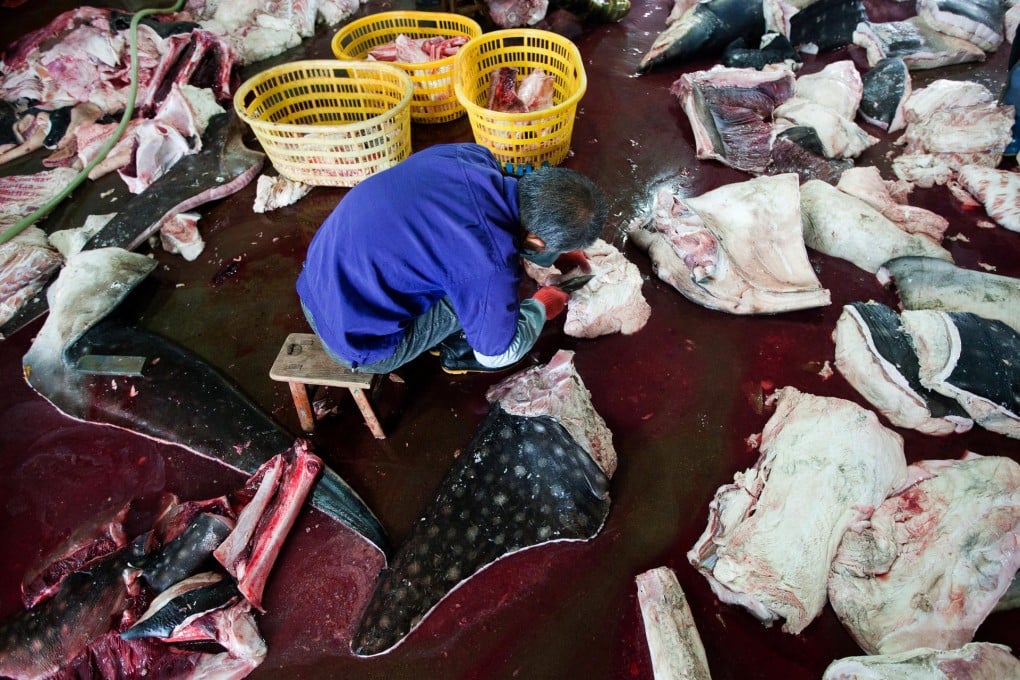Inside the world's biggest shark abattoir: shocking pictures show scale of slaughter
Zhejiang plant 'processing hundreds of endangered specimens a year'

A Hong Kong-based conservation group claims a Zhejiang company is running the world's largest shark abattoir, processing hundreds of endangered specimens a year to produce health supplements and meat for restaurants.

"We went there three times in the past three years and each time the scale of the slaughter was truly staggering," directors Paul Hilton and Alex Hofford wrote in a report. "It's even more incredible that this carnage is all for the sake of non-essential lifestyle props, such as lipsticks, face creams, health supplements and shark's fin soup."
Hilton said WildLifeRisk was tipped off about the factory by a local wildlife conservation group in 2010.

In Pictures: The world's biggest shark slaughterhouse
"We went undercover, posing as an international seafood trading company looking for new products," he said. "The general manager of the plant was filmed saying more than 600 whale sharks were processed there each year."